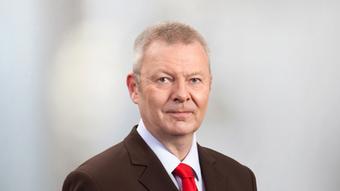Former Chancellor Angela Merkel held two public appointments in the past week. At the Helmut Kohl Foundation, she met the new CDU leader Friedrich Merz, to whom she has a deep dislike. And in Goslar she gave the speech on the occasion of the 1100th anniversary of the city. All of this is extremely unspectacular. And she didn’t say anything really important, the woman who was long revered by many as the savior of the free Western world – especially when Donald Trump was still in power in Washington.
And otherwise? Merkel recently announced that she wants to publish her memoirs in autumn 2024. But actually there is a lot of calm around the woman who ruled Germany for 16 years. And that era hasn’t ended that long.
No one asks the former chancellor for advice
Of course, that is primarily up to Merkel herself, who has made her announcement come true and obviously no longer needs the public. But above all, so much has happened in just twelve months since the federal election that it feels as if light years have passed since Merkel sat in the chancellor’s office.
Merkel is also rarely asked for her advice or her assessment of the current, frightening world situation, because the impression is that she has left her successor Olaf Scholz from the SPD and his traffic light coalition in quite a mess. For more than a decade and a half it has done nothing to counteract Germany’s energy dependence on Russia. She overslept the digitization of the country. Infrastructure and public facilities were saved broken. In 2015 she generously welcomed many refugees, mainly from Syria, to Germany, but after that she no longer bothered about the details of orderly immigration.
Merkel’s course: no unreasonable demands
And that’s why the view of Merkel is very different today than it was a year ago – that applies to those in government today, but also to her own party, the CDU. There is little mention of her composure, her lack of vanity, her down-to-earth attitude. Merkel is not necessarily held responsible for wrong political decisions, not that. But for what she has failed to do.
Of course, it’s fair to accuse her of misjudging Russian President Waldimir Putin and underestimating his danger. Almost all Western politicians have done this. But what one can blame her for is her political stance of expecting as little as possible from the Germans. The times when such a policy was possible are finally over.
Merkel’s policy: not brave enough
At the opening of the Helmut Kohl Foundation in Berlin, Merkel said that one must take the words of Russian President Putin seriously and not ignore the time after the war. That really sounds like something from another, almost lost world. There really is no danger that the war-loving ruler will not be taken seriously in the Kremlin. But what exactly should politicians discuss with him at a time when Putin is tackling his country’s general mobilization?
Perhaps the historic verdict on Merkel will be even more merciful if the West, if Germany, manages to survive this most serious crisis since the Second World War. The few months that have passed since Merkel left the Chancellery have already fundamentally changed the country. The economy and society are looking to the future with deep uncertainty. That’s not Merkel’s fault. But it shows what she could have accomplished with a little more courage in her 16 years in power.












